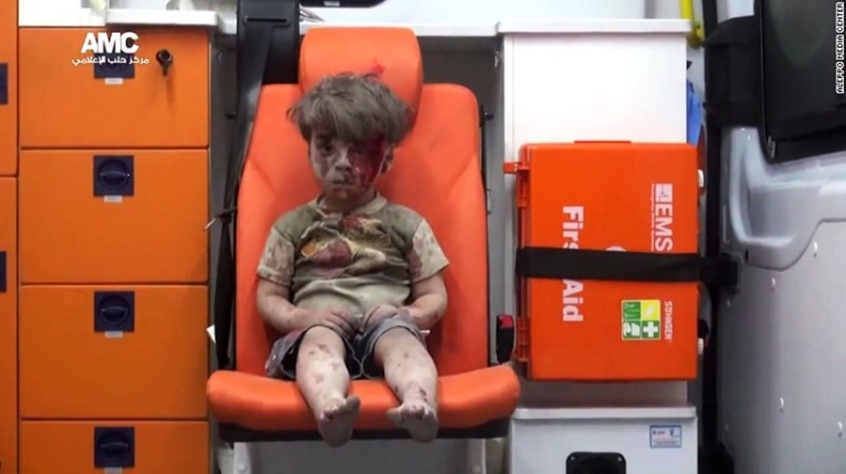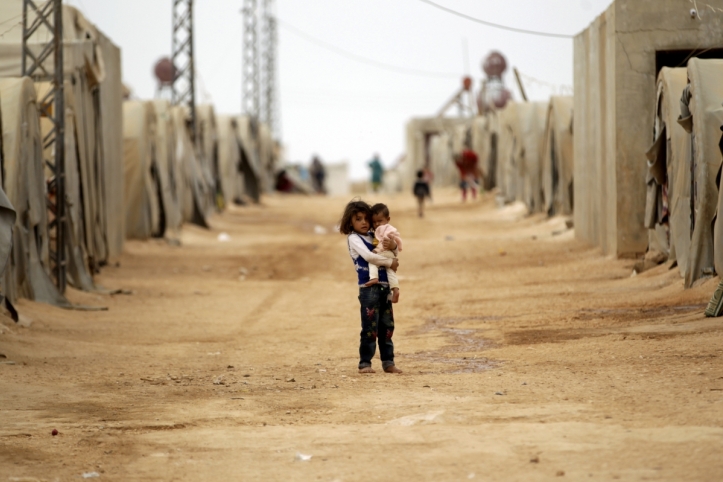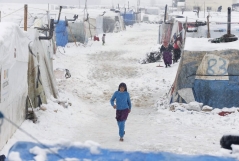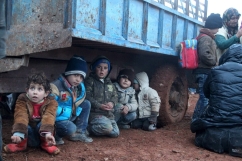
The world's attention has been brought back to Syria by the picture of a young boy, stunned by what has just happened to him, his family and his home.
Omran Daqneesh has become a symbol of those forgotten in the bloody conflict raging in Syria. The innocent children who have become victims of an unimaginable horror that continues to unfold month after month, year after year.
It is a haunting image. Sharing it is not an easy decision – there are ethical questions involved. But if sharing shakes us out of apathy, then it is worth it. The image may be haunting, but we will be haunted by our failure to protect Syria's children if we ignore it.
The precise reasons an image like this goes viral are difficult to pin down. But what is clear is that many across the world feel a sense of empathy. This could be their child, their brother, their nephew.
Jesus himself spoke about the special place children have. "It would be better for you if a millstone were hung around your neck and you were thrown into the sea than for you to cause one of these little ones to stumble," he said – a verse for Assad, ISIS and others to carefully reflect upon.
The statistics behind the picture are even more upsetting than the image itself. Omran Daqneesh survived, many of his contemporaries have not. "It is difficult to know exactly how many children have died as a result of the war," says a report on PBS, "but the United Nations has placed the number in the tens of thousands."
A Sky News report from Aleppo says: "Medics, who have gone underground after their hospital was reduced to rubble by a targeted Syrian government bombing campaign, say children are being injured and killed in greater numbers now than the rebel fighters. Stuck inside this city the children are on the streets more than anyone else. Playing or scavenging amongst piles of rubbish for anything of value to take home, they are now the most vulnerable."
On top of the deaths, millions of others have been deeply affected. Save The Children says 7.5 million Syrian children have been affected by war — the population of London, or Washington state. Two million children are missing out on school – the equivalent of all school-age kids in New York, LA and Dallas combined.
These statistics are horrifying, but we have almost become used to them. The conflict has been going on for five years, it's killed 470,000 people, life expectancy has dropped from 70 to 56. It just goes on and on.
The problem is that these statistics are so overwhelming that they fail to convey the human stories that are behind them. The awful reality of every one of the deaths and injuries somehow passes us by. Then, all of a sudden, we see a picture which stops us in our tracks and reminds us that behind each of these numbers is a real person – often a child.
So, what can we do?
The only thing that will prevent further suffering is for the violence to end. Pressuring Russia to end its bombardment of rebel areas and arming of President Assad would be a start. Whoever becomes US president in November must make this foreign policy goal number one – bringing an end to the war will be tough, but we must redouble our efforts.
For now, we can all make a direct difference. We can support charities working on the frontline and with refugees. Embrace the Middle East is doing great work, as is Christian Aid and Tearfund.
Be generous – give what you can. It could be your child. It could be any of our children.


















